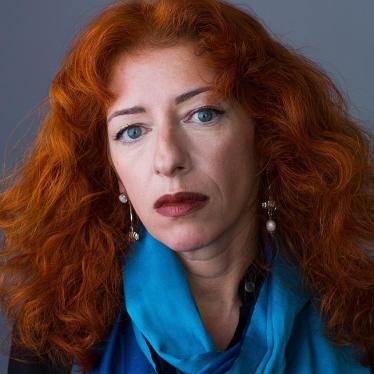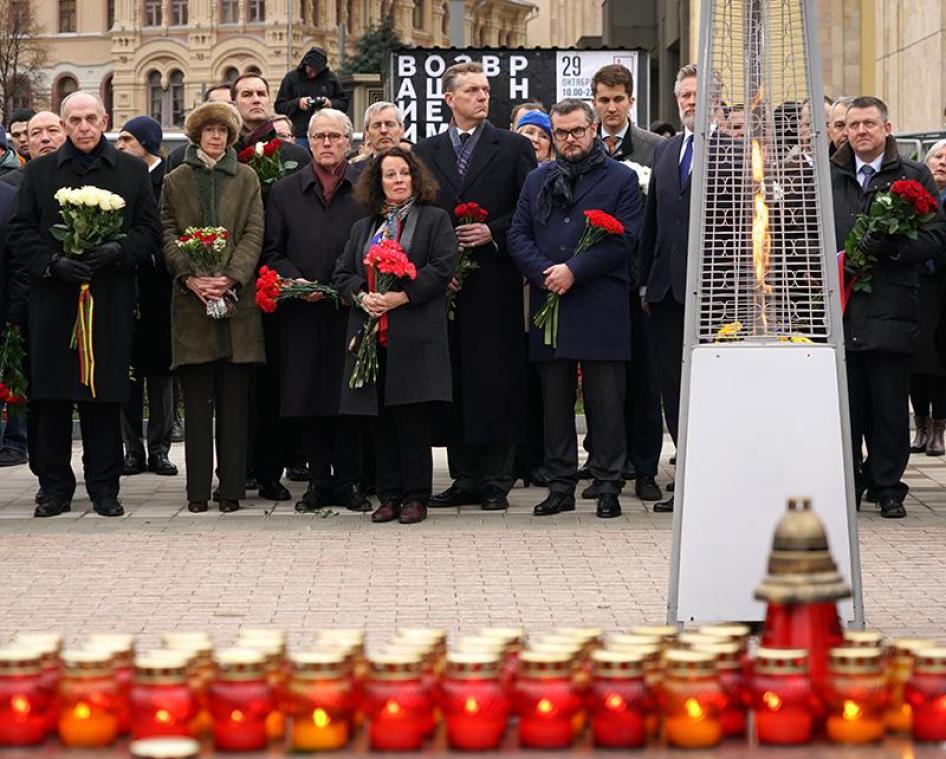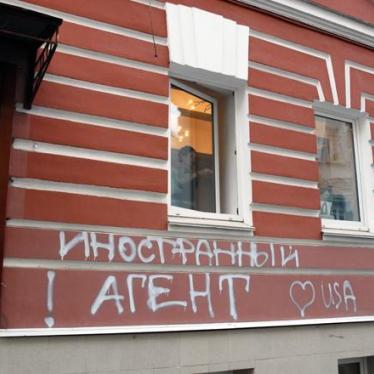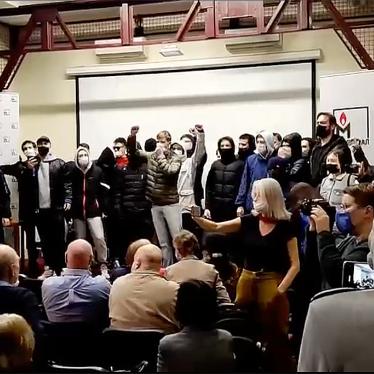Last week, Russian authorities made clear their intentions to shut down Memorial, the country’s most authoritative human rights organization, and one of its oldest. Memorial defends human rights, works to commemorate victims of Soviet repression, and provides a platform for open debate and free artistic expression.
It has two key entities, the International Memorial Society, and the Human Rights Center. The Prosecutor General’s Office went after the former, accusing it of repeatedly violating the requirements of Russia’s insidious “foreign agents” legislation. Moscow City prosecutors targeted the latter in a more creative manner, falsely accusing the group of making statements supporting terrorists and extremists, as well as, equally falsely, of failing to meet its “foreign agent” obligations. The court hearings are to be held later this month.
Vladimir Putin’s government has dramatically escalated its crackdown on civil society in recent years, toughening the “foreign agents” legislation, expanding it through new draconian amendments and tarnishing dozens of groups, media outlets, and even more harmfully, individual journalists and activists, with the toxic designation. Scores of human rights defenders and media workers have seen little choice but to flee the country to escape criminal prosecution under the even more menacing law on “undesirable organizations.”
Yet even against this grim backdrop, the attack on Memorial is shocking. Throughout Russia’s contemporary history, Memorial has been the backbone of the country’s human rights community. It has been the epicenter of Russian civil society, the protector of memory about Soviet repression and post-Soviet human rights abuses, and a go-to place for critical thinkers, artists, academics and others concerned about the future of their country.
A telling illustration of the role Memorial plays as the country’s moral conscience is an event that took place every Oct. 29 for 15 years running. On this date, until 2020 when the Russian authorities craftily used the pandemic to put a halt to any public gatherings, except those to their liking, Memorial brought together thousands in Lubyanka, central Moscow to commemorate those murdered during Stalin’s Great Terror of 1937-1938.
Holding a white piece of paper with the victim’s name, age, occupation, and date of execution, people would queue up to a microphone for hours on end, more often than not in inclement weather, next to Solovetsky Stone, on Lubyankya Square, near the headquarters of the Federal Security Service (FSB), formerly the KGB.
Memorial’s activists had brought the stone all the way from Solovki, on the White Sea, one of the U.S.S.R.’s first gulag labor camps. It was installed in 1990 as a monument to those tortured and killed. Workers, clerks, officials, teachers, doctors, lawyers, tailors and stablemen — over 30,000 perished during those two years in Moscow alone. Some of these and other names resounded at Lubyanka annually, thanks to Memorial. The gathering was poignantly called “Returning of Names,” as through reading the names out loud, people were making the memory come alive and solemnly pledging not to let history repeat itself.
It was also Memorial that exposed abuses during the bloody and protracted wars in Chechnya and methodically documented politically motivated prosecutions, arbitrary arrests and unfair trials across Russia. For many years, Memorial has been standing up for victims of past and contemporary abuses, writing up and cross-checking testimony and tirelessly seeking justice for human rights violations.
Orwellian claim
Now, without a trace of irony, the authorities are accusing Memorial of “committing a flagrant violation of citizens’ rights” by “systematically concealing information about carrying out the functions of a foreign agent.” To substantiate the ludicrous accusation, they refer to a sequence of administrative fines imposed on the two Memorial groups and their respective leaderships in recent years for failure to mark some published materials with the “foreign agent” label, one of the pernicious requirements of the “foreign agents” law.
They are making an Orwellian claim that non-compliance with this very requirement resulted in undermining the right to freedom of expression and the rights of the child enshrined in the Russian Constitution and international human rights law. They’re also equating Memorial’s reports on abuse and misuse of the country’s broad and vague counter-terrorism and counter-extremism legislation with justification of terrorism and extremism, a crime under Russian law.
Shocked by this outrageous attack, Memorial’s supporters in Russia and internationally are rallying in support of the group. There is no doubt that by moving against Memorial, the country’s true human rights giant, the authorities are taking aim at the very heart of Russian civil society. It is impossible however, to wipe out historic memory and people’s aspirations for fundamental freedoms and the rule of law. Memorial will prevail.
Tanya Lokshina is the associate Europe and Central Asia director at Human Rights Watch.










